By Chris Bevan BBC Sport in Rio de Janeiro After 32 days, 64 games and 171 goals, there was only one winner. Germany are the new world champions after grabbing the glory at the 2014 World Cup in Brazil.
The tournament will be remembered for its exciting games and spectacular goals but also some of the biggest shocks of recent times, with the hosts Brazil and defending champions Spain both suffering humiliating defeats.
England, meanwhile, only lasted eight days and two games before being eliminated.
BBC Sport’s TV and radio football presenters and pundits look back on the action and choose their best goal, best player and most memorable moment of the tournament, before considering how far away England are from being contenders.
Listen to Colombian commentary on James Rodriguez’s stunning volley
Gary Lineker: The volley James Rodriguez scored for Colombia against Uruguay is the one that stands out for me. The little look behind him, the chest, the turn, the volley.
You could have 50 goes at that and not get close to doing what he did. In fact, I would never score that goal in a million years.
Alan Shearer: That Rodriguez strike is the goal of the tournament for me, the technique and touch was perfect and the execution was amazing. It was the perfect goal – Rodriguez’s balance and the way he got his shot away.
World Cup 2014: Robin van Persie scores with superb header
Rio Ferdinand: Easily the best goal is that Rodriguez effort. But the instinct of Robin van Persie’s header, coming at such a distance and spotting the keeper off his line, it is such a hard skill, that comes second.
Mark Lawrenson: I’m going to stick with Van Persie’s header because he had to get that absolutely 100% right, otherwise he would have just headed it into the goalkeeper’s arms.
World Cup 2014: Tim Cahill nets stunning volley for Australia
It’s a completely unique goal, he’s not just smashed it and it has flown in. What also made it special was that I was there to see it, and spent a split second thinking ‘oh my goodness, how did he do that?’.
Chris Waddle: James Rodriguez’ volley was the best goal but Tim Cahill’s volley for Australia against the Duch was a very close second.
It’s a hard skill to do, to meet the ball perfectly when it drops over your shoulder and you are running on to it, but Cahill swung a leg at it and met it perfectly. It could have cleared the stadium but it went in off the bar.
World Cup 2014: Germany 4-0 Portugal highlights
Danny Mills: Germany’s Thomas Muller is quite unique. I’ve watched him a lot, and this is going to sound silly, but I’m not really sure what he is great at. He is not blisteringly quick, and he does not run at you, dribble or shoot from distance.
I look at him and think how would I have stopped him, and I’m not really sure because he drifts and wanders so much.
What he is, is clever. He is a goalscorer, who is fantastic at being in the right place at the right time. That is what makes him almost unplayable at times.
Mark Lawrenson: The best player in Brazil has been Muller and not just because of the goals he has scored.
He is very much the archetypal modern-day footballer – a great athlete who can play anywhere and get you goals but also understands every position he plays. He is an outstanding footballer.
World Cup 2014: James Rodriguez’s six World Cup goals in Brazil
Tim Vickery: It has to be James Rodriguez. I know Colombia went out in the quarter-finals but there was something from him in every game.
He produced perhaps the outstanding 45 minutes of football from an individual at the tournament when he came on at half-time in their group game against Japan.
The score was 1-1 and Japan were trying to win to go through but Rodriguez made two goals with sensational passes of a different type and scored a wonderful solo goal to seal a 4-1 win.
And the winner: Lionel Messi (Argentina)
Angel Di Maria, Javier Mascherano, Lionel Messi (Argentina)
Mats Hummels, Toni Kroos, Phillip Lahm, Thomas Muller (Germany)
James Rodriguez (Colombia) Neymar (Brazil), Arjen Robben (Netherlands)
World Cup 2014: Colombia 4-1 Japan highlights
Alan Shearer: The star of the show has been James Rodriguez.
Rio Ferdinand: I have to agree, Rodriguez is a young guy and not many might have known about him before the tournament but, wow, they do now. He went back to Colombia a hero.
Gary Lineker: I am Lionel Messi’s biggest fan and he is the most wonderfully gifted player since Diego Maradona but, here in Brazil, I have been disappointed with what I have seen.
There is no question in my mind that the Argentina forward has become quite static on the pitch in this tournament.
Alan Hansen: In 22 years as a pundit, and 40 years in the game, I have never seen anything like Germany’s 7-1 win over Brazil.
Highlights: Brazil 1-7 Germany
Gary Lineker: It was truly astonishing. Germany’s elation was matched by Brazil’s desolation. It was not necessarily the greatest football match but certainly the most remarkable football match I’ve ever seen.
Alan Shearer: I don’t think I have ever seen anything like it in football. Yes, Brazil were poor but, for every bit Brazil were poor, then Germany were very impressive. The telling thing for me was how devastated Manuel Neuer was when the goal went it in the last minute.
Chris Waddle: I don’t think we will see anything like it again. For Germany to beat the hosts, who had a nation behind them, like that was amazing.
Germany just got everything right and they were so composed the way they played their football. They are on to something good with their current team, and they have some very exciting years ahead of them.
Tim Vickery: What you heard on 9 July was the sound of 200 million people’s jaws collectively hitting the floor. It was absolutely unbelievable to see Brazil capitulate in that fashion in a game where, if the Germans had wanted to, they could honestly have scored 15.
Gary Lineker, Mark Lawrenson, Danny Murphy, Phil Neville, Jason Roberts and Danny Mills, Robbie Savage,
Alan Shearer, Rio Ferdinand, Chris Waddle, Pat Nevin, Brad Friedel, Martin Keown
Rio Ferdinand: If there were cameras on us in the BBC studio, you would have seen myself and Alan Shearer jumping around at the beautiful goals in the Netherlands’ 5-1 win over Spain.
Highlights: Spain 1-5 Netherlands
Arjen Robben running half the length of the pitch past a world class defender in Sergio Ramos and putting the ball in the back of the net the way he did, that’s what you want to see in a World Cup.
We were in the studio together again for the Brazil-Germany game and saying ‘what is happening here?’
The Dutch thrashing Spain was not expected but there was a feeling that it was the end of an era for Spain. The Brazil-Germany result was just ridiculous.
Gotze scores winner for Germany in final
Alan Hansen: This World Cup has been sublime, the matches have been great, tonight was terrific to watch and the goal that won the World Cup was extra special.
Germany are phenomenal at getting the job done – their team ethos, their great players. It was a great goal to win the final – a great run and cross from Schurrle and a great volley from Gotze. That was the hardest chance of the lot. He knew he was going to score.
Rio Ferdinand: This isn’t a project started last year by the German FA. It’s something that has been in the making for the last 10-12 years. These players have played together at international youth level, under-21 level. Now they’re world champions. England fans will be watching this and asking ‘can we do this?’
Gotze has been promising to do something like this in a German shirt for a while. They love him in Germany, he is a wonder kid. Argentina are going to have nightmares because they had great chances but couldn’t score.
Kids watching this game wanted to see Messi do something special. He had a big chance but his time didn’t come. But Messi has done things at club level that others have come nowhere near. It’s unfortunate he was unable to produce here.
Chris Waddle: I’m sure Argentina will get a good welcome back home but when they do go back, they will be thinking they could have won this game. They had all the chances. After so many misses you start thinking if Germany get a chance, they will get the goal, and that’s what they did.
Overall Germany deserve it. Argentina, we had glimpses of what they could do but they stuttered their way through the tournament.
Alan Shearer: The Germany manager deserves a lot of credit. He was so near and yet so far in previous tournaments. He changed his tactics and system and believed in what he thought would work.
For Lionel Messi to have the iconic status of Pele and Diego Maradona he has to lift the World Cup. He had his chance this time and didn’t take it.
Clarence Seedorf: Germany are absolutely worthy of winning the World Cup. They were the best team throughout and they grew a lot. They were always very solid, got through the results and improved as the tournament went on.
Today was quite equal, maybe the best chances went to Argentina, but it is still deserved by Germany.
Danny Mills: As a team Germany have been exceptional. Efficient, strong and their game-management is absolutely superb.
Chris Waddle: England are a long way behind the teams who went the distance in the tournament. I would say there are at least 10 or 12 nations ahead of us, especially on the basis of consistency.
World cup exit is horrible – Lampard
Alan Shearer: I think the longer the tournament has gone on, the more you realise how poor England were.
As the Netherlands, Costa Rica, Belgium and the United States, to a certain extent, got so far, it tells us we have a long way to go.
We have to be able to organise and get further in the World Cup than we have done.
This tournament has proved you don’t have to have great players all over the park to progress.
Gary Lineker: It was massively disappointing to go out after two games and so early in the tournament, but I saw enough in those games to suggest the future is not as bleak as I thought it was four years ago.
I think we were at rock bottom then but now we are starting to climb back up. We still have a long way to go and we are a long way behind other countries but we are making strides in the right direction.
With this bunch of young players, in two or four years’ time, there is reason for hope.
For the best of BBC Sport’s in-depth content and analysis, go to our features and video page.
View the original article here
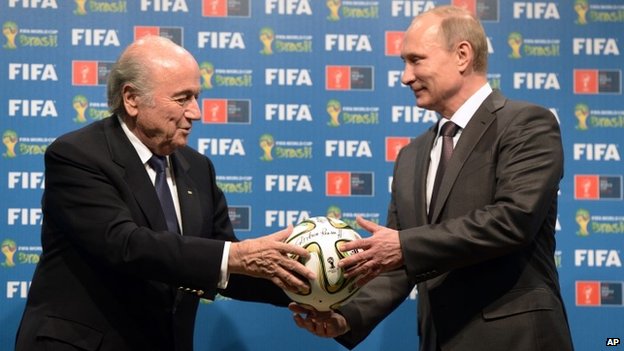 Fifa president Sepp Blatter met Russian leader Vladimir Putin at the World Cup in Brazil Russia should lose the right to host the 2018 World Cup as part of tougher sanctions following the plane crash in eastern Ukraine, Nick Clegg has said.
Fifa president Sepp Blatter met Russian leader Vladimir Putin at the World Cup in Brazil Russia should lose the right to host the 2018 World Cup as part of tougher sanctions following the plane crash in eastern Ukraine, Nick Clegg has said.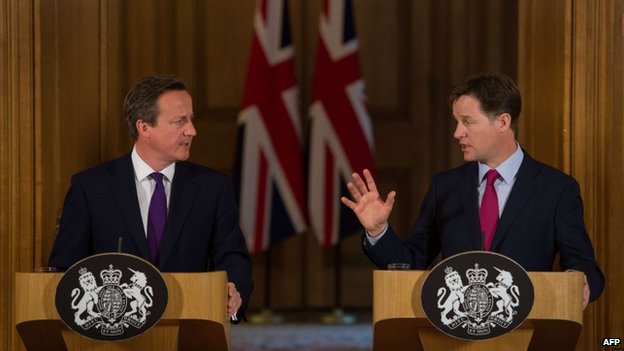 The BBC’s Ross Hawkins said there was “no indication yet” of the PM backing Mr Clegg’s World Cup call
The BBC’s Ross Hawkins said there was “no indication yet” of the PM backing Mr Clegg’s World Cup call 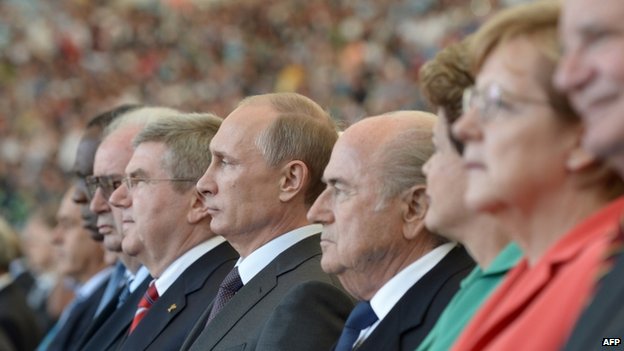 Mr Clegg said stripping Russia of the World Cup would be a “potent” sanction
Mr Clegg said stripping Russia of the World Cup would be a “potent” sanction 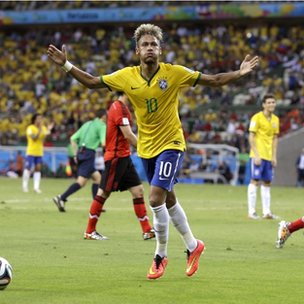 Brazil hosted the 2014 World Cup
Brazil hosted the 2014 World Cup 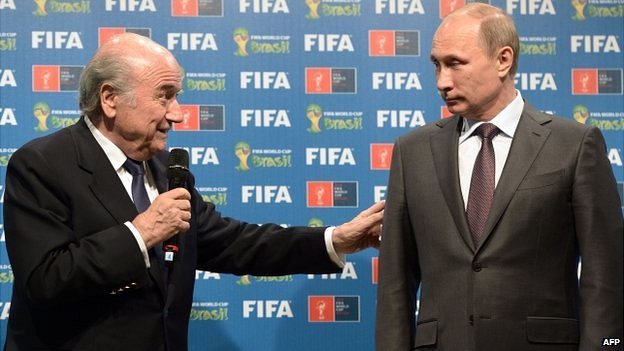 Fifa’s focus will now be on the World Cup 2018 host Russia and its president, Vladimir Putin After what was largely considered to be a successful World Cup in Brazil, international attention now turns to the next hosts, Russia.
Fifa’s focus will now be on the World Cup 2018 host Russia and its president, Vladimir Putin After what was largely considered to be a successful World Cup in Brazil, international attention now turns to the next hosts, Russia.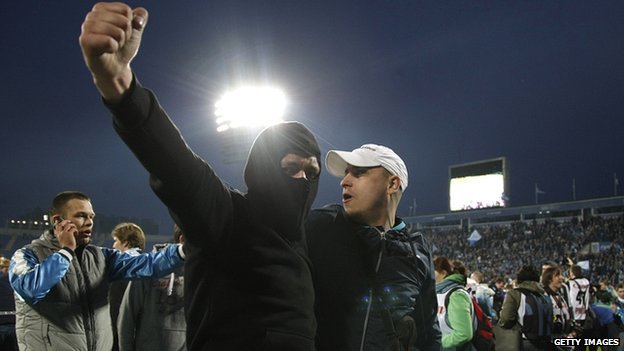 Russian Premier League clubs have been sanctioned over the behaviour of their fans
Russian Premier League clubs have been sanctioned over the behaviour of their fans 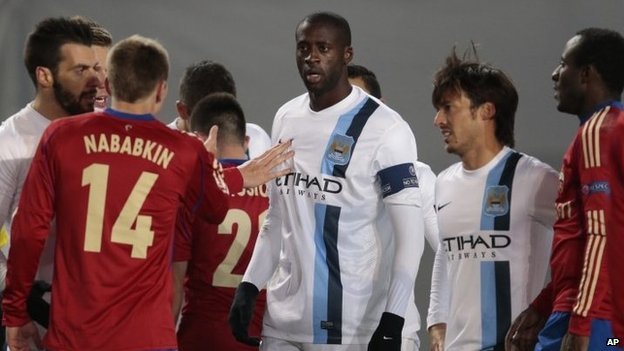 Manchester City’s Ivorian midfielder Yaya Toure is among several players to have been racially abused by fans in Russia
Manchester City’s Ivorian midfielder Yaya Toure is among several players to have been racially abused by fans in Russia 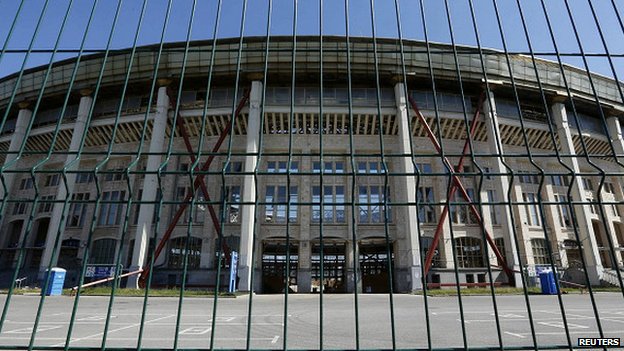 Moscow’s Luzhniki stadium – which will host the final – has been closed for refurbishment since last year
Moscow’s Luzhniki stadium – which will host the final – has been closed for refurbishment since last year 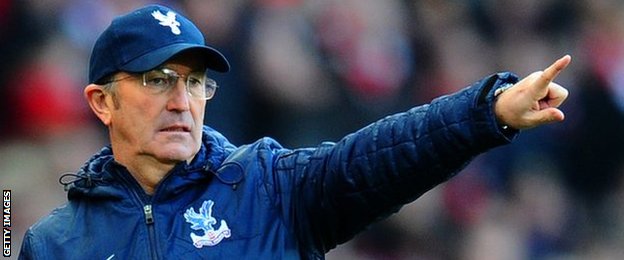 Pulis’s Crystal Palace team finished 11th in the Premier League last season
Pulis’s Crystal Palace team finished 11th in the Premier League last season 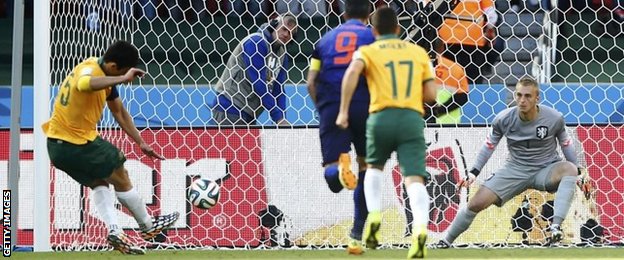 Captain Mile Jedinak scored for Australia against the Netherlands, but his side lost all of their games in Brazil
Captain Mile Jedinak scored for Australia against the Netherlands, but his side lost all of their games in Brazil 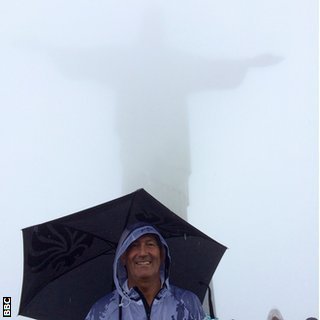 As well as scouting players, the World Cup also offered the chance to see some of Brazil’s sights
As well as scouting players, the World Cup also offered the chance to see some of Brazil’s sights